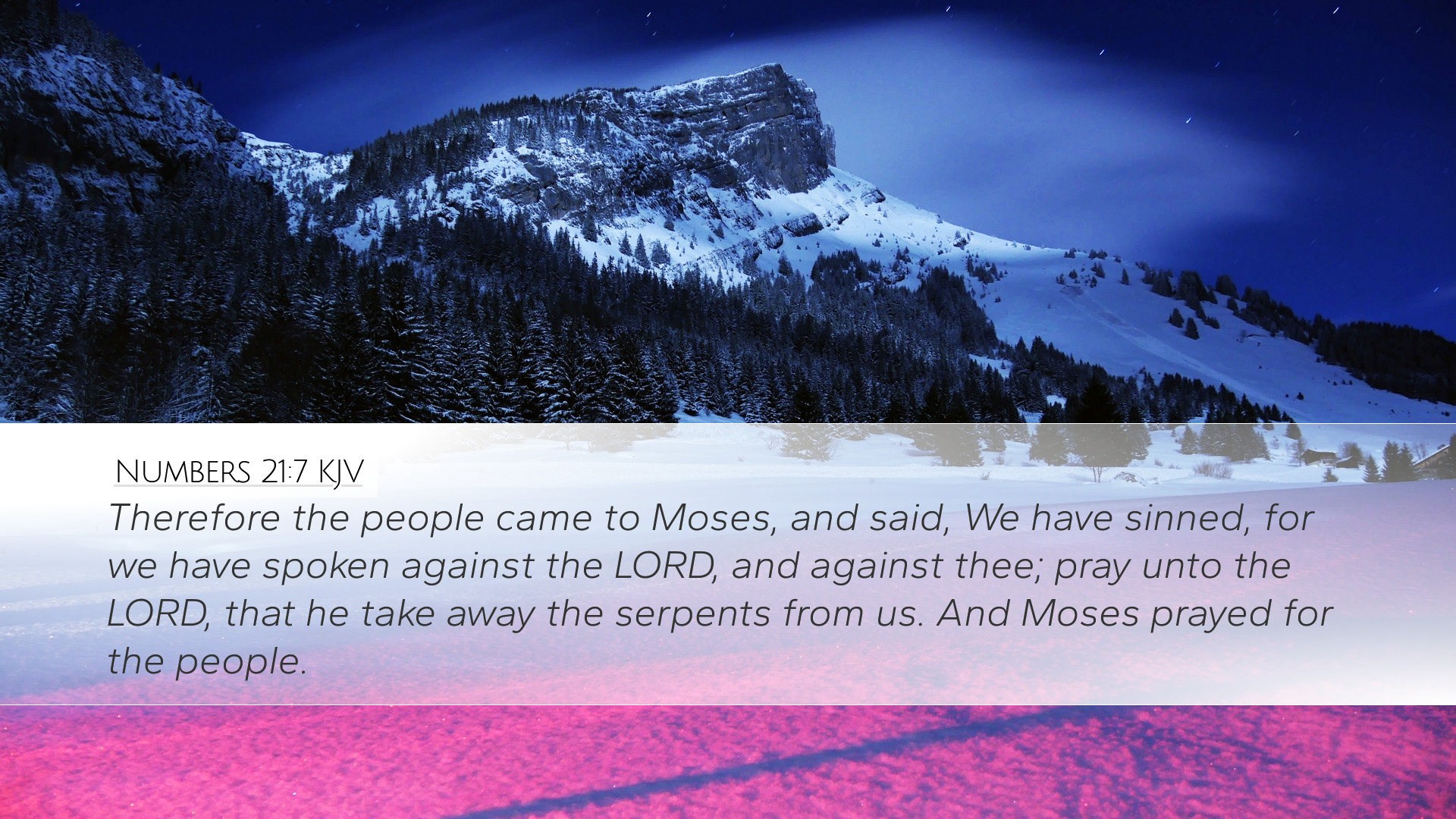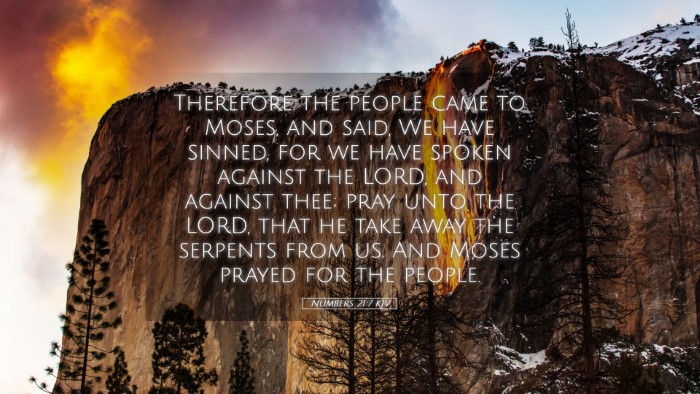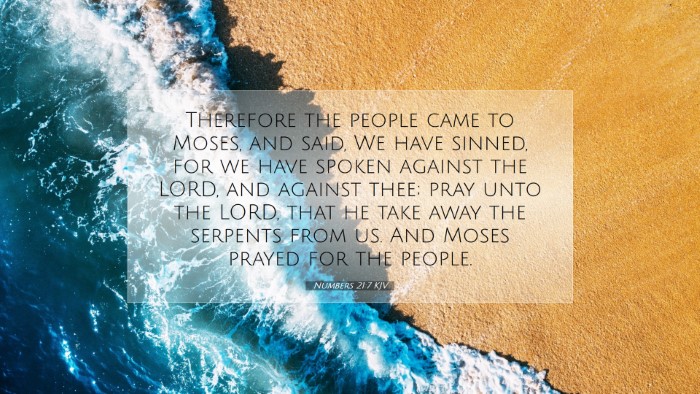Commentary on Numbers 21:7
Numbers 21:7 (NIV) reads: "The people came to Moses and said, 'We sinned when we spoke against the LORD and against you. Pray that the LORD will take away the snakes from us.' So Moses prayed for the people."
Contextual Overview
In this chapter, the Israelites are wandering in the wilderness and facing the consequences of their previous disobediences. The verse reflects a moment of repentance as the people recognize their sinfulness and seek intercession from Moses.
Commentary Insights
The People's Acknowledgment of Sin
The verse begins with the Israelites coming to Moses, acknowledging their sin. Both Matthew Henry and Adam Clarke highlight that this admission is crucial for reconciliation with God. The people’s statement serves as a confession: they understand their wrongdoing in speaking against both God and Moses.
Matthew Henry comments on the importance of confession, stating that true repentance begins with recognizing one's transgressions. This outward expression indicates a turning point from their previous rebellious attitudes.
The Role of Intercession
The plea to Moses to pray for them signifies the role of spiritual leadership in interceding for the people. Albert Barnes emphasizes that the Israelites could not approach God directly with their request; thus, they sought Moses as their mediator. This historical context reflects a prophetic foreshadowing of Christ, who mediates between God and humanity.
Moses, in his humble leadership, acts not just as a leader but as a servant willing to advocate for Israel's restoration. His response to their need highlights a core element of pastoral care—that a leader must be willing to intercede for others, carrying their burdens before God.
The Nature of God's Discipline
Following their sin, the Lord allowed fiery serpents to inflict pain and suffering upon the Israelites, a point noted by both Clarke and Henry. The serpents symbolize God's judgment and serve as a reminder of the seriousness of divine discipline.
Adam Clarke posits that this incident underscores the idea that God’s actions, though sometimes painful, are ultimately for the purpose of correction and a return to a covenant relationship. The hardships faced by the Israelites were a divine strategy aimed at drawing them back to God.
The Importance of Prayer
Moses's immediate response to pray for the people is a profound act of humility and leadership. Henry suggests that prayer is a powerful means of seeking God's mercy, especially when one acknowledges guilt and desires restoration.
Albert Barnes elaborates that this prayer reflects Moses's deep compassion and care for the people, demonstrating that prayer is not merely a ritual, but an earnest cry for divine intervention.
Theological Reflections
This verse presents rich theological implications about sin, repentance, and intercession. The acknowledgment of sin leads to a plea for mercy, illustrating the human condition whereby we often realize our need for divine grace only in times of distress.
Moses's prayer serves as a model for modern believers: it demonstrates that we too are called to intercede for others, embodying the compassion of Christ. As leaders, students, and theologians delve into this text, they are reminded of the profound impact of sincere prayer and the necessity of turning back to God in times of tribulation.
Conclusion
Numbers 21:7 encapsulates a critical moment of introspection for the Israelites, set against the backdrop of their suffering and God's discipline. The elements of confession, the role of spiritual intercessors, and the seriousness of sin and its consequences stand prominent. For pastors and students studying this verse, it serves as a powerful reminder of God's holiness and the grace available through repentance and prayer.


